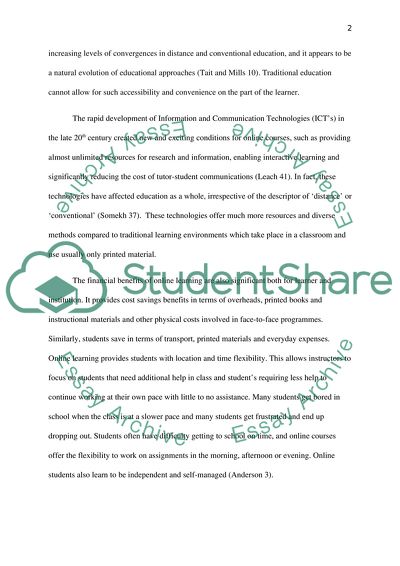Online Learning VS traditional learning Essay Example | Topics and Well Written Essays - 500 words. Retrieved from https://studentshare.org/miscellaneous/1597168-online-learning-vs-traditional-learning
Online Learning VS Traditional Learning Essay Example | Topics and Well Written Essays - 500 Words. https://studentshare.org/miscellaneous/1597168-online-learning-vs-traditional-learning.


